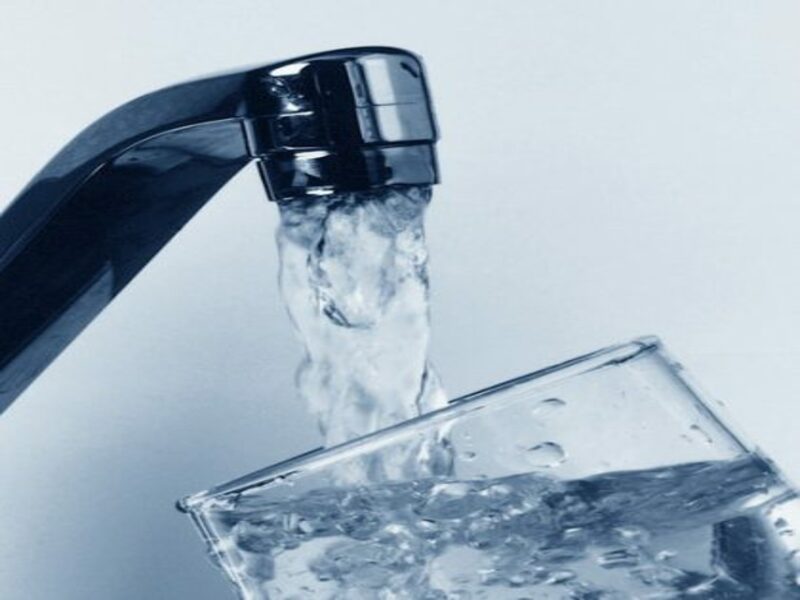The Environmental Protection Agency (EPA) has said that one in 20 private drinking water supplies were found to have E.coli contamination in 2021.
The agency has today (Friday, November 25) released the ‘Drinking Water Quality in Private Group Schemes and Small Private Supplies 2021’ report.
Drinking water is provided by over 380 group water schemes to approximately 200,000 people across rural communities in Ireland.
Additionally, over 1,700 small private supplies (premises like hotels, pubs and restaurants, crèches, nursing homes and national schools) provide water to approximately 60,000 staff, customers and service users on a daily basis.
Drinking water quality report
Meeting E.coli standards is a basic requirement in the provision of safe drinking water.
In 2021, one in 20 private supplies were found to have E. coli contamination, indicating that the water supply has not been properly disinfected.
According to the EPA, the failure of these disinfection systems put the health of approximately 6,000 people that use these drinking water supplies throughout the country, at risk.
In addition, 21 private group schemes (7%) failed to meet the standard for trihalomethanes (THM), including five schemes that the European Commission has identified as being of particular concern.
THMs are a by-product of the treatment process and are formed where there is an excess of organic matter in the water source.
Commenting on the findings of the report, Dr. Tom Ryan, director of the EPA’s Office of Environmental Enforcement said: “Compliance with drinking water standards in private supplies for E.coli and THMs hasn’t improved in recent years.
“It is essential that works to improve water quality are carried out as soon as possible to eliminate serious risks to people’s health.
“Private water suppliers are obliged to make sure their drinking water is clean and wholesome for consumers. Local authorities must investigate supplies that fail to meet drinking water quality standards and, where necessary, follow up with enforcement action to protect public health.”

Water improvement supports
Funding is available to group water schemes and household well owners for improvements to their supplies through the Multi-Annual Rural Water Programme (MARWP).
During the 2019-2021 MARWP funding cycle over 60% (€36 million) of funding available for infrastructural improvements went unused by water suppliers, according to the EPA.
Noel Byrne, programme manager of the EPA’s Office of Environmental Enforcement said: “Water quality in private supplies consistently lags behind public water quality.
“It is disappointing to see that €36 million of funding was not used by suppliers to address infrastructural needs at problematic private supplies.
“The Department of Housing, Local Government and Heritage needs to complete its review of rural drinking water services, with the purpose of providing direction and support to water suppliers and to eliminate public health risks.”
Small private supplies
During 2021, over one quarter of small private supplies, serving food businesses, nursing homes, crèches and B&Bs were not monitored, according to the report.
In addition, although there are 1,700 small private supplies registered with local authorities, there may be many more that are unregistered.
If a supply isn’t registered and hasn’t been monitored, there is no information on the quality of the drinking water provided to consumers.
Water users are urged to register the supply with the local authority, if not currently registered, and address problems as they arise.
Some key findings of the 2021 report on private water supplies include:
- 444 (26%) of the 1,709 small private supplies registered were not monitored;
- The percentage of schemes fully compliant with the E.coli standards was as follows: Private group water schemes – 95.4% (17 of 372 failed to meet the standard); small private supplies – 95.4% (59 of 1,295 failed to meet the standard);
- 21 private group schemes and five small private supplies failed to meet the THM standard.
Trihalomethanes
Trihalomethanes are a by-product of the chlorine disinfection process and are formed where there is an excess of organic matter in the water source.
Water suppliers should aim to keep THM levels within the drinking water standards. 21 private group schemes serving approx. 26,000 people failed to meet the standard for THMs.
During 2021 the European Commission referred Ireland to the Court of Justice of the European Union in relation to THM exceedances.
